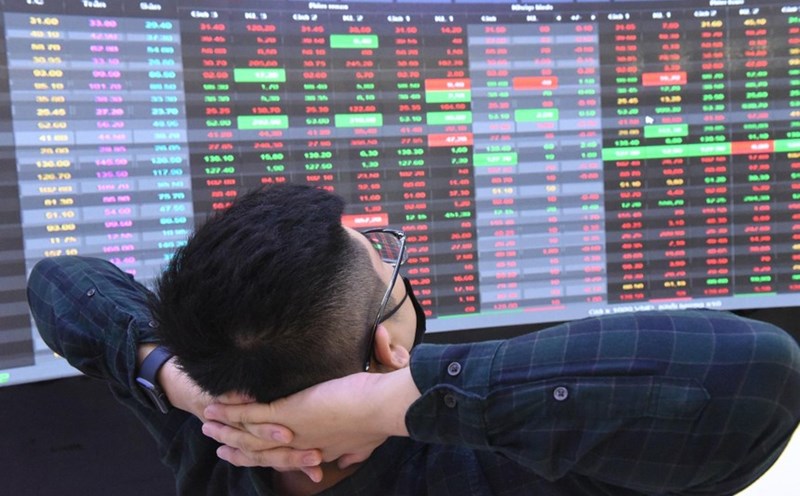The VN-Index continues to fluctuate in a negative manner with correction pressure from large-cap stocks and liquidity at a record low in nearly 2 years. This is something that experts are quite worried about.
In yesterday's trading session, market liquidity was super low, with the lowest matched volume in the past 4 years and a sharp decline (-37.3%) compared to the 20-session average.
In the context of a sharp decline in market liquidity, foreign investors also traded less actively, but still net sold nearly 500 billion VND in the session of January 9.
The loss of liquidity combined with the correction within a not-too-large amplitude is showing the caution and somewhat boredom of investors, so the correction is likely to continue in the coming sessions.
Analysts from Asean Securities Company (ASC) said that in the coming sessions, the domestic stock market will continue to fluctuate in the short term, with the 1,240 point area being an important technical support level that investors need to pay attention to.
At the same time, as macroeconomic uncertainties are entering their final stages, investors should be prepared with cash to establish a solid portfolio position amid dry market liquidity and very attractive valuations.
In the context of weak liquidity and increasing selling pressure, many recommendations are given to investors to be cautious and prioritize observing market developments. Focus on stocks with good fundamentals, less affected by foreign investors, and with the potential to recover in the medium term.
If the VN-Index fails to maintain the 1,240-point zone, investors should be more cautious and consider reducing their stock exposure. At the same time, maintain a reasonable cash exposure, avoid chasing purchases, and wait for clearer signs of improvement in liquidity and cash flow trends.
For VN-Index to overcome the resistance zone of 1,300, it needs to retest the support zone of 1,300 and then find liquidity to break out into a new uptrend.
In this scenario, liquidity is the most important factor to confirm whether the uptrend is sustainable or not. If the market increases sharply in price but liquidity does not increase correspondingly, the uptrend will be difficult to maintain for a long time, easily leading to sellers taking profits, causing a strong selling psychology in the general market.
Overall, the market is currently in a weak state, with pressure from both declining liquidity and net foreign capital selling. Investors need to be patient, cautious, and wait for clearer positive signals before increasing their investment proportion.
It is possible to consider continuing to disburse in part with large stocks, with high growth potential, good fundamentals, positive business prospects and strong growth in sync with the development of the economy.











